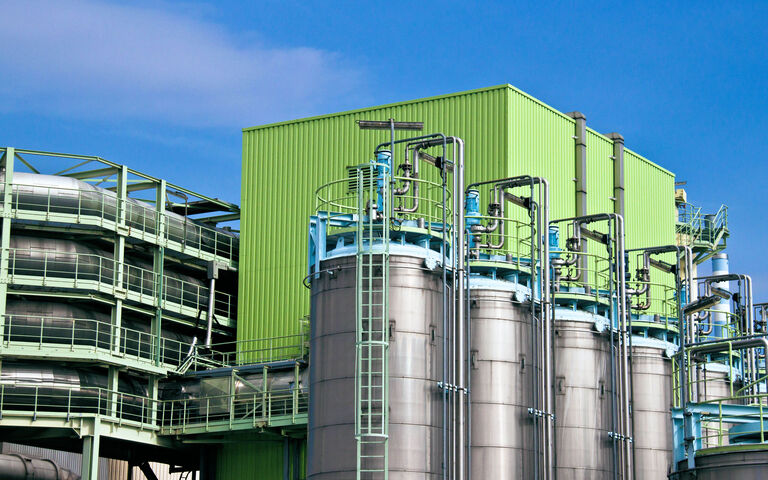
Sludge thermochemical treatment
An introduction to sludge thermochemical treatment methods
Your web browser is out of date.
Update your browser for better security, speed and to get the best experience on this website.
Oxidative methods for sludge thermochemical treatment comprise incineration, wet air oxidation (WAO) and supercritical water oxidation (SCWO). These processes convert the combustible organic matter to primarily carbon dioxide and water, along with other gaseous oxidised products present at lower concentrations, and a solid residue. These methods differ in terms of the operational temperature and pressure, the required feed sludge water content, and the nature and concentrations of gaseous and solid products generated.

An introduction to sludge thermochemical treatment methods
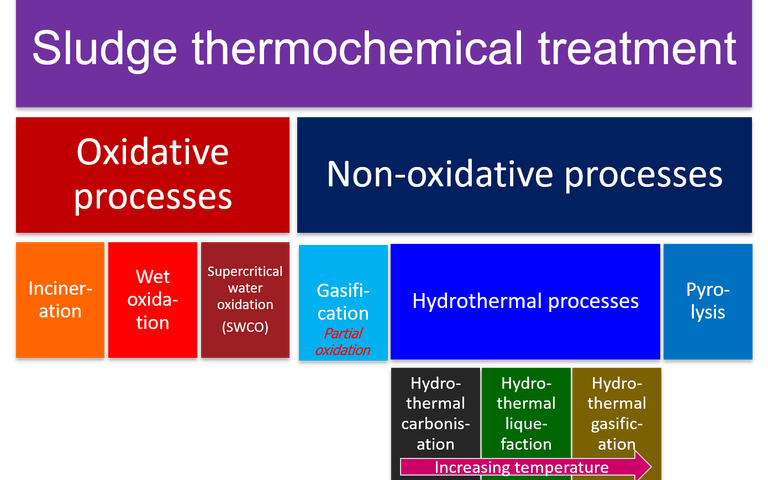
Thermochemical methods are used for either degrading the sludge solids or pre-treating sludge upstream of anaerobic digestion
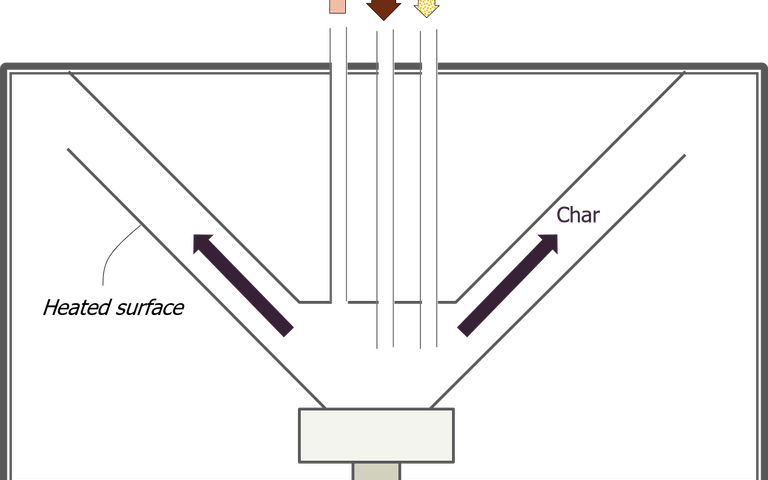
Various reactor configurations exist for sludge thermochemical treatment which vary in design, operation and application
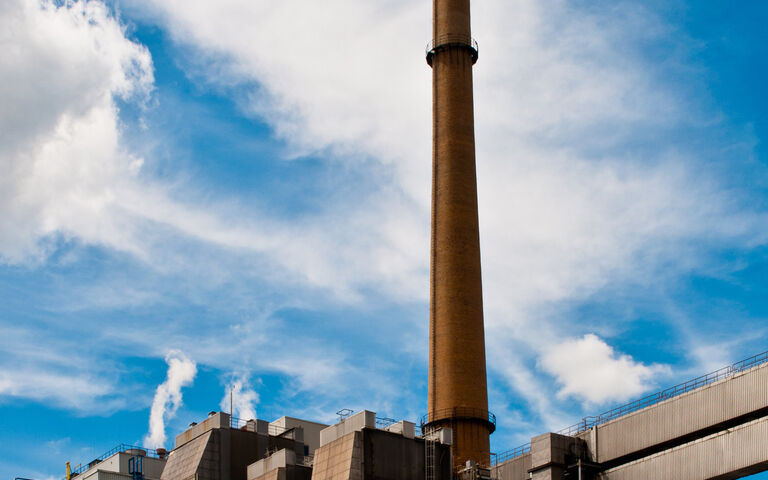
An introduction to oxidative sludge thermochemical treatment methods
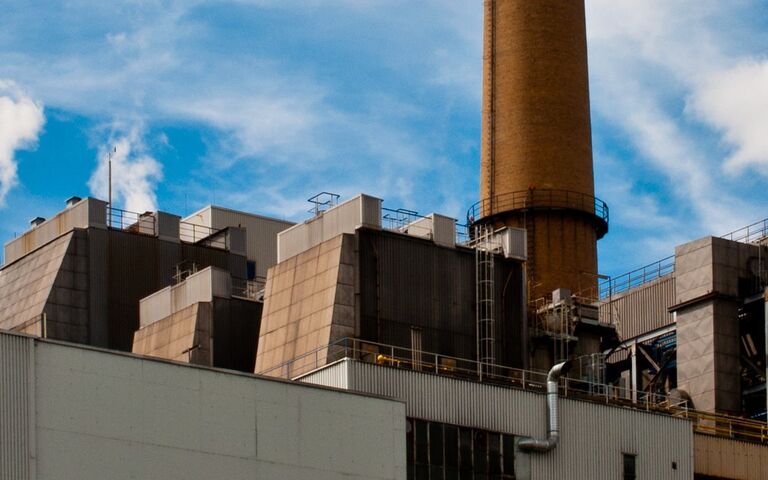
Incineration is the most well established and widely implemented of the sludge thermochemical treatment processes
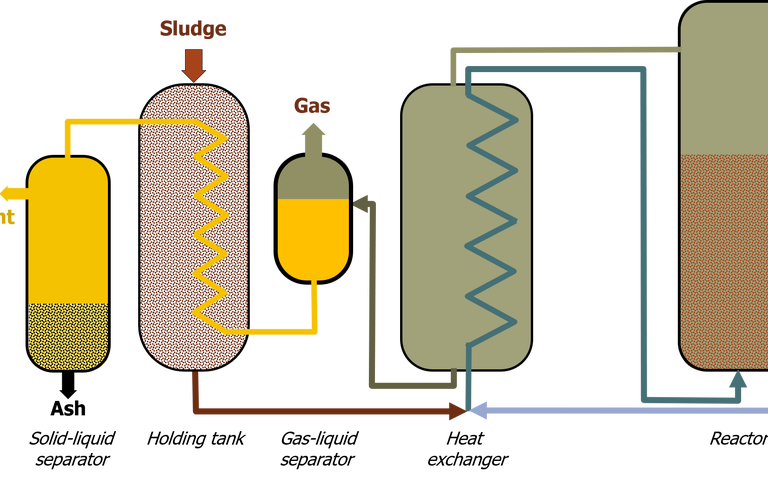
Wet/wet air oxidation of sludge is the thermal degradation, hydrolysis and oxidation of organics at high temperatures
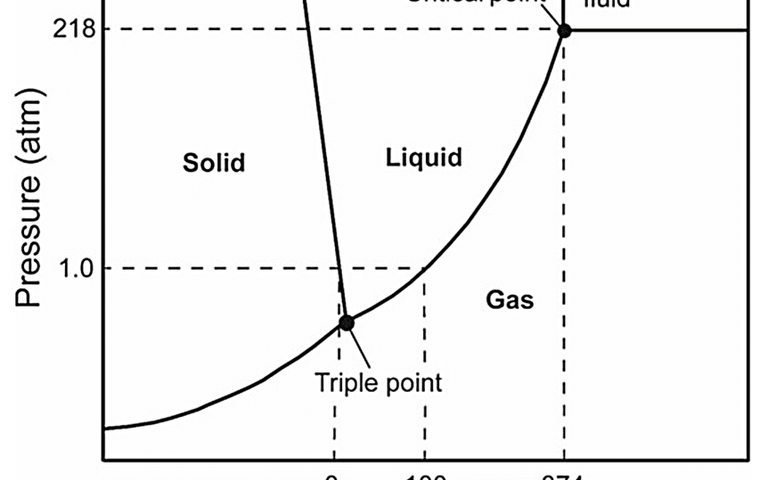
Supercritical water oxidation refers to the oxidation of organics in water in the so-called supercritical phase of water
Bubbling vs recirculating bed reactor configurations − an animation demonstrating the workings of a fluidized bed boiler. A taster of a full video developed by Convergence Training by Vector Solutions.
Incineration oxidatively converts the sludge solids into gaseous and predominantly mineral products at high temperatures
Supercritical water oxidation (SCWO) refers to the rapid oxidation of organics in water in the supercritical phase of water
Wet air oxidation of sludge is the degradation, hydrolysis and oxidation of organic matter at high temperatures and pressures
Oxidative methods for sludge thermal treatment comprise incineration, wet air oxidation and supercritical water oxidation
Non-oxidative thermochemical treatment of sewage sludge refers to treatment at elevated temperatures in the absence of oxygen
Thickening, dewatering and drying extract water from sludge to reduce the sludge volume
Sludge stabilisation − alkaline stabilisation, lime and solids dosing, plus anaerobic and aerobic digestion
Sludge is the main waste stream from the treatment of wastewater